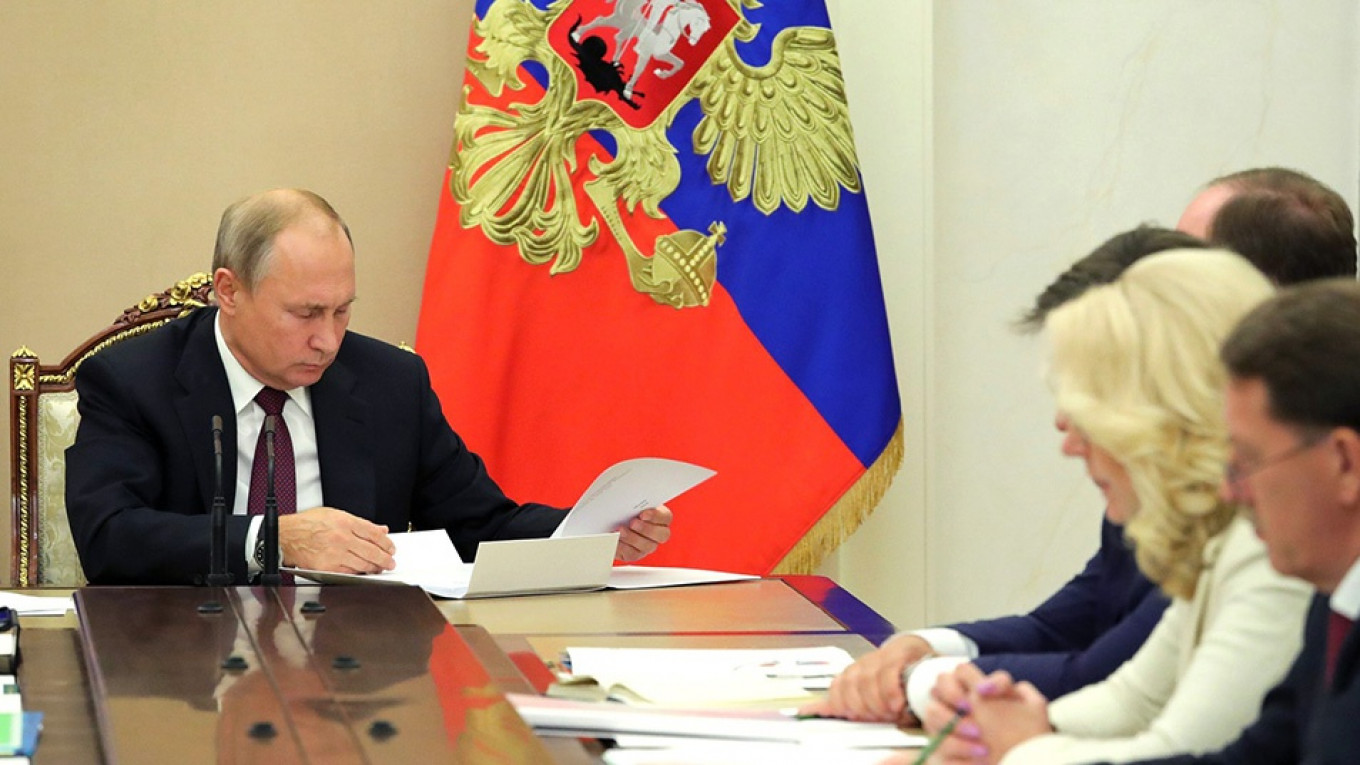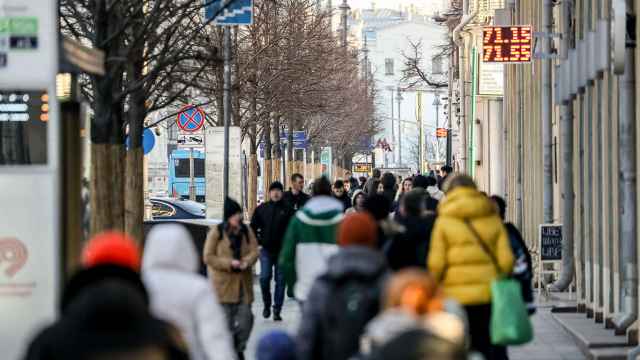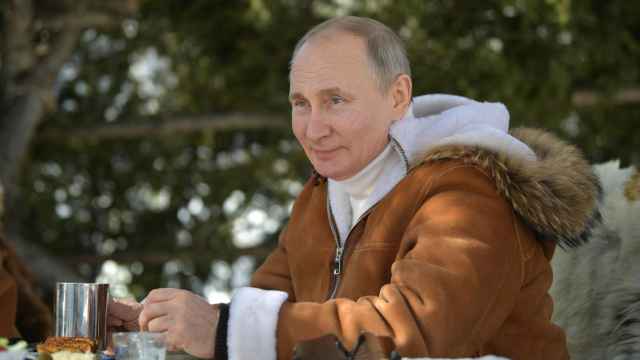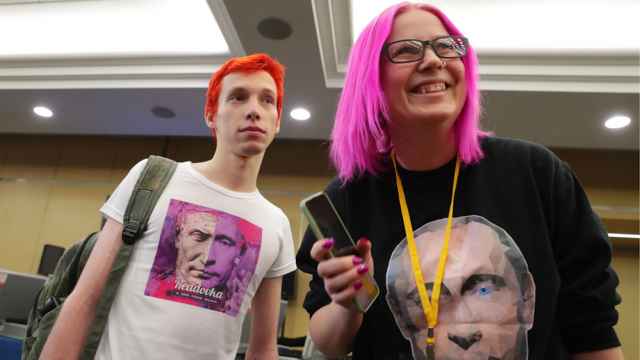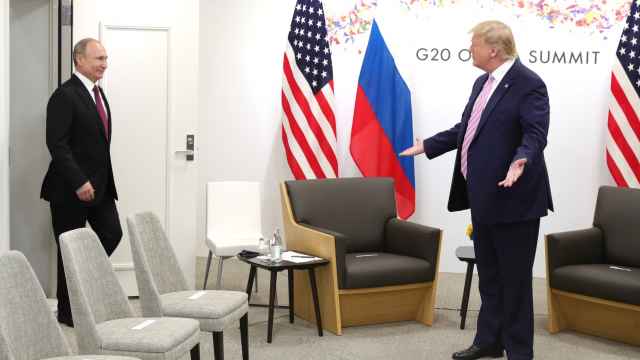Trust in the Russian presidency has dropped to pre-Crimean annexation levels amid rising anger over a new law that raises the population’s retirement age, according to a recent survey.
President Vladimir Putin on Wednesday signed into law controversial legislation to raise the pension eligibility age to 65 for men and 60 for women starting in 2019. The changes are the most unpopular government measure since a 2005 move to scrap Soviet-era benefits, which led to nationwide pensioner protests.
Trust in the Russian presidency has dropped to 58 percent, down 17 points from last year’s rating, according to the results of a survey rating institutional trust published Thursday by the independent Levada Center pollster. The president’s rating dropped to levels last seen in a survey conducted by Levada in 2013.
The share of respondents who said they completely distrust the presidency has climbed from 4 percent to 13 percent in the past year according to the poll.
Meanwhile, trust in the Russian armed forces overtook trust in the presidency for the first time in recent years. Nearly two-thirds of respondents said the military “is completely trustworthy.”
The next most trusted institutions chosen by respondents were the FSB and other intelligence services, at 50 percent, and the church, at 48 percent.
“Despite the Kremlin doing all it can to shift responsibility for the unpopular reform onto others, it is Putin who’s responsible for the good and the bad,” Levada sociologist Denis Volkov said in comments about the survey’s results, as cited by the Kommersant business daily.
Levada conducted the survey among 1,600 respondents in 52 Russian regions between Sept. 20 and Sept. 26.
Reuters contributed reporting to this article.
A Message from The Moscow Times:
Dear readers,
We are facing unprecedented challenges. Russia's Prosecutor General's Office has designated The Moscow Times as an "undesirable" organization, criminalizing our work and putting our staff at risk of prosecution. This follows our earlier unjust labeling as a "foreign agent."
These actions are direct attempts to silence independent journalism in Russia. The authorities claim our work "discredits the decisions of the Russian leadership." We see things differently: we strive to provide accurate, unbiased reporting on Russia.
We, the journalists of The Moscow Times, refuse to be silenced. But to continue our work, we need your help.
Your support, no matter how small, makes a world of difference. If you can, please support us monthly starting from just $2. It's quick to set up, and every contribution makes a significant impact.
By supporting The Moscow Times, you're defending open, independent journalism in the face of repression. Thank you for standing with us.
Remind me later.


